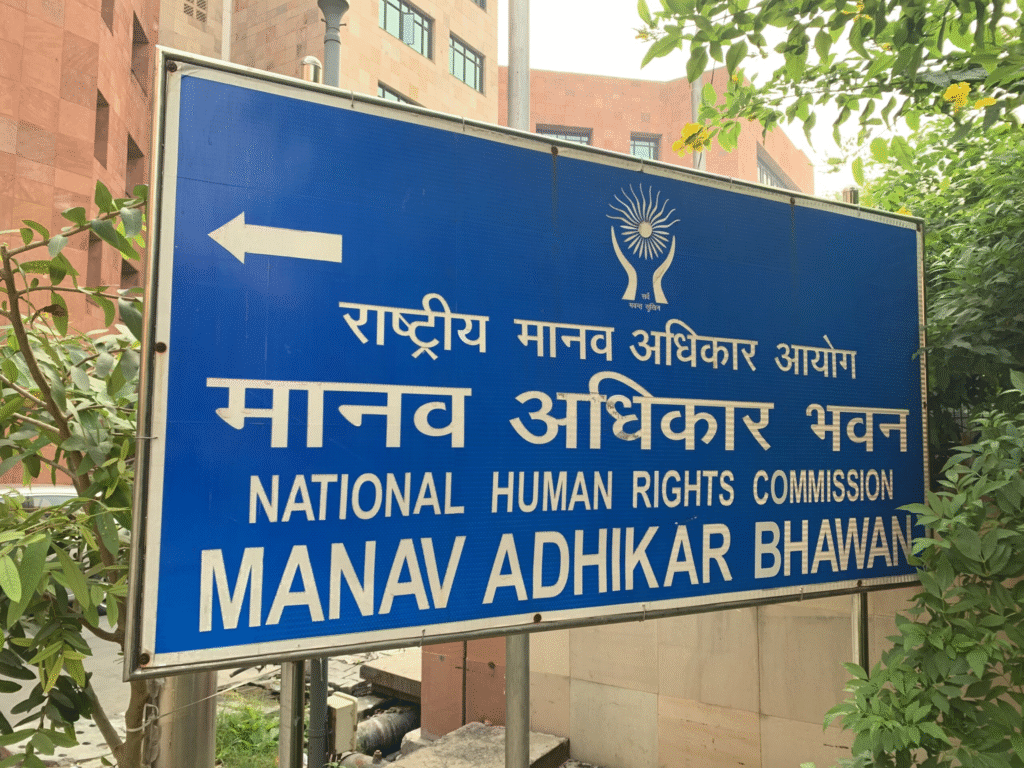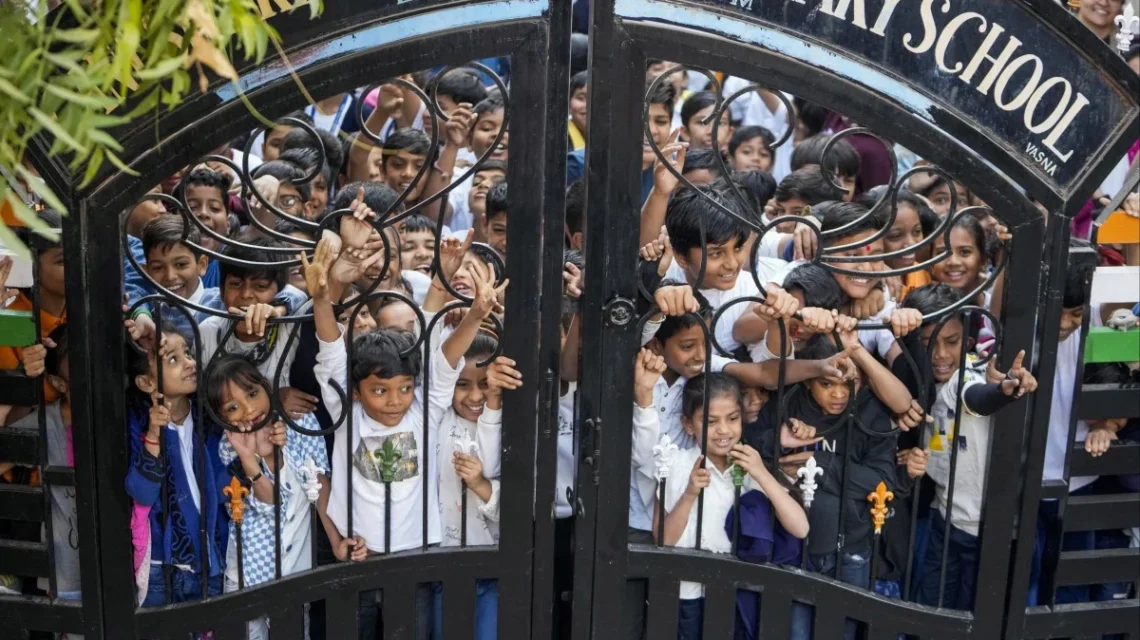Snake Found in Indian School Food, 100+ Kids Ill
In a shocking incident in Mokama, a small town in Bihar, India, over 100 schoolchildren fell ill after eating a midday meal contaminated with a dead snake.

The National Human Rights Commission (NHRC) is investigating the case, calling it a serious violation of students’ rights.
The incident has raised concerns about food safety in India’s massive free school lunch program, which feeds millions of children daily. Local authorities are scrambling to address the issue, while angry villagers demand accountability.
What Happened in Mokama?
On April 24, 2025, a cook at a government-run school in Mokama, near Patna in Bihar, reportedly found a dead snake in the food prepared for the midday meal. Instead of discarding the contaminated food, the cook removed the snake and served the meal to around 500 students.
Shortly after eating, more than 100 children began experiencing symptoms like vomiting, dizziness, and nausea. Some children were rushed to local hospitals for treatment. Witnesses reported chaos as parents and villagers gathered at the school, furious over the incident.

The midday meal program, designed to provide free lunches to students in public schools, is a lifeline for many children in Bihar, one of India’s poorest states.
The presence of a dead snake in the food has shocked the community and raised questions about hygiene and oversight in the program.
The news first broke through local media reports, which caught the attention of the NHRC. The commission took action on its own, a process called “suo motu cognisance,” after reading about the incident.
Social media posts on amplified the story, with users expressing disgust and concern over the children’s safety.
“A dead snake in school lunch? Over 100 kids sick. This is beyond disgusting.” The public outcry pushed authorities to respond quickly. Doctors who examined the children found no traces of poison in their systems, but the incident still caused widespread alarm.
Who Discovered the Issue?
The issue came to light when children started falling ill soon after eating the meal. Teachers and school staff noticed students vomiting and complaining of dizziness, prompting them to alert local health officials. Parents, alarmed by their children’s condition, rushed to the school and discovered the cook’s actions.
Some witnesses claimed the snake had fallen into the food during preparation, possibly from a storage area or an open kitchen. The cook’s decision to serve the food anyway sparked immediate outrage. Villagers, furious over the negligence, blocked a nearby road, National Highway 31, to protest and demand action against the school management.
Local media outlets, including CNN News 18, reported the incident, bringing it to national attention. The NHRC, which monitors human rights violations in India, picked up the story from these reports and launched an investigation. The commission’s involvement elevated the issue, framing it as a potential breach of the children’s right to safe food and health.
Where Did This Happen?
The incident occurred in Mokama, a town in the Patna district of Bihar, located in eastern India. Bihar is one of India’s most populous and economically challenged states, where many families rely on government programs like the midday meal scheme to ensure their children get at least one nutritious meal a day.
The school in question is a government-run institution, part of a network of over 1.27 million schools nationwide that serve free lunches to about 120 million children. Mokama’s government school, like many others, operates on limited resources, which can lead to lapses in hygiene and food safety. The town’s proximity to Patna, the state capital, has put additional pressure on local officials to act swiftly.
Bihar has faced similar incidents in the past. In 2013, 23 children in the state’s Saran district died after eating a school meal contaminated with pesticides. The Mokama incident has rekindled fears about the safety of the midday meal program, especially in rural areas where oversight is often weak. The region’s poverty and lack of infrastructure make it harder to maintain strict food safety standards, leaving children vulnerable to such risks.
Why Is This a Human Rights Violation?
The NHRC has labeled the incident a “serious issue of violation of the human rights of the students.” The commission argues that children have a fundamental right to safe food, especially in a government-funded program meant to support their health and education.
Serving contaminated food, particularly after discovering a dead snake, shows gross negligence and endangers young lives. The NHRC’s statement emphasized that, if true, the incident reflects a failure of the system to protect vulnerable children.

Consuming food contaminated by a dead animal poses serious health risks. Experts note that dead snakes can carry harmful bacteria like Salmonella, Clostridium, and E. coli, which can cause severe food poisoning. Symptoms include vomiting, diarrhea, fever, and dehydration, all of which the Mokama children experienced.
Even if the snake was not venomous, its decomposition could release toxins, making the food unsafe. The fact that the cook served the meal despite knowing about the contamination raises ethical and legal questions. The NHRC believes this negligence violates the children’s right to health and safety, as well as their right to education, since such incidents can deter families from sending children to school.
The incident also highlights broader systemic issues. India’s midday meal scheme, while groundbreaking, has faced criticism for inconsistent quality and safety. Past tragedies, like the 2013 pesticide poisoning, show how lapses in oversight can have deadly consequences. The NHRC sees the Mokama case as part of a larger pattern of neglect that disproportionately affects poor and marginalized communities, making it a human rights concern.
What Are Authorities Doing?
The NHRC has taken swift action by issuing notices to several Bihar government officials, including the Chief Secretary and the Senior Superintendent of Police in Patna.
The commission has demanded a detailed report within two weeks, including updates on the children’s health and steps taken to prevent future incidents. The NHRC’s investigation will focus on whether the school followed food safety protocols and why the cook was allowed to serve the contaminated meal. The commission has also asked for an inquiry into the school’s management and the broader midday meal program in Bihar.
Local authorities are also responding. Subham Kumar, a subdivisional magistrate in Mokama, has promised a thorough investigation into the incident.
Health officials are monitoring the affected children, most of whom are recovering, though some required hospital care. The police are involved, with the NHRC directing them to investigate media reports and identify those responsible. There are calls for strict action against the cook and school staff, though no arrests have been reported yet.
The incident has sparked wider discussions about reforming the midday meal scheme. Authorities are under pressure to improve food safety standards, train kitchen staff, and strengthen inspections. The NHRC’s involvement ensures the case will remain in the spotlight, with potential consequences for Bihar’s education and health departments. Meanwhile, villagers continue to demand accountability, refusing to let the issue fade.
The Mokama incident is a reminder of the challenges facing India’s ambitious school lunch program. While it aims to nourish and educate millions, lapses in safety can have devastating effects.


 Why Is Trump Doubling Down on a US-India Trade Agreement?
Why Is Trump Doubling Down on a US-India Trade Agreement?  Sharif’s Dialogue Call: A New Chapter or Old Promises?
Sharif’s Dialogue Call: A New Chapter or Old Promises?  Horrific Gang Rape at Gopalpur Beach
Horrific Gang Rape at Gopalpur Beach  How Did India Find Oil in Andaman Sea?
How Did India Find Oil in Andaman Sea?  Water Crisis in Pakistan 4 Urgent Letters to India
Water Crisis in Pakistan 4 Urgent Letters to India  Rapper Badshah Faces Backlash Over Dua Lipa Comment
Rapper Badshah Faces Backlash Over Dua Lipa Comment